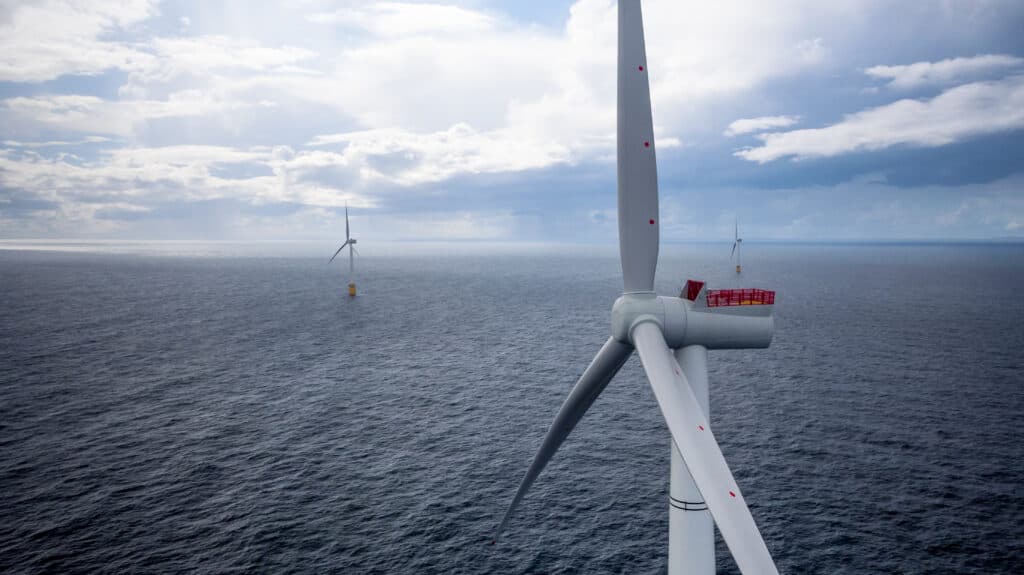Recent independent research has found that ORE Catapult innovation and support over the past 10 years has generated significant impact for the UK and led to £470m investment in the offshore renewable energy sector. We plan to delve further into specific areas of the research in our Impact Evaluation blog series for more insight into how we deliver these results.
One of the key findings of the research is that ORE Catapult is recognised as a thought leader in the renewable energy space, informing key policies and decision making.
To find out more, we spoke to David Wallace, Head of Strategy at ORE Catapult.
“There’s certainly nothing like us, in offshore wind globally. ORE Catapult is unique – we weren’t modelled on any existing organisation, and we support the sector through technology development and expertise, access to facilities for testing and validation, policy analysis, and complex economic modelling.
“When ORE Catapult was established, there was an understanding that we would need to play a bridging role between industry, academia and the Government. We have persevered with this challenging balancing act because we believe it is truly beneficial, and part of the justification for continued government support. ORE Catapult’s success owes a lot to how we can convene activities between stakeholders, as we are trusted to act in the interests of the sector.
“Our vision goes beyond economic benefit – looking at the decarbonisation challenge and providing confidence that the UK will get where it needs to be.”
Being a thought leader is integral to our identity and function, how has that been embedded as a key feature of ORE Catapult?
“Early on in our history we e were tasked with developing the offshore wind Cost Reduction Monitoring Framework (CRMF) from 2014 – 2016 to help the government understand how quickly the UK was getting to the target of £100 per megawatt hour (MWH), and we saw how important it was to have strong capabilities in economic analysis and technology roadmapping. We realised that growing our analytic capabilities would allow us to provide influential advice as different policies and directions emerged.
“We have been able to use the CRMF and innovation road mapping to demonstrate to Government that there is value in investing in the sector, as we have a long-term vision for where and how technology needs to progress. The Industrial Growth Plan (IGP) was published in 2024 and sets out the industry’s ambition for growing the UK supply chain. Our role is to support growth in the UK’s capacity to deliver more of the products and services required for offshore wind farms.
How important is it to have a long-term perspective within the industry?
“Part of the value of ORE Catapult is that we have a substantive body of work in research and testing, as well as a longer-term perspective on where the sector is heading. A great example of this is the role we played in tidal stream energy – insights from our TIGER project had a significant positive impact on related policy decisions, helping to secure £20m of ringfenced funding for tidal stream energy in the UK Government’s Contracts for Difference Allocation Round (AR) 4, £10m for AR5 and £15m for AR6. Through these auctions, 122 megawatts (MW) of TSE projects have been awarded.”
A key finding from the research was that ORE Catapult’s independence was key to our success as a thought leader. Why do you think this is important?
“Our independence is hugely valued by the UK Government and by industry. There is clear recognition that because we have a Government grant and a public mission, we have an element of freedom from commercial pressures and can act in the interests of the sector. But the reverse is also true: our substantial commercial work means we are not totally reliant on Government. For example, because of this independence we were invited to take on a leading role in the establishment of the Celtic Sea Cluster, which has gone on to play a part in helping the region put plans in place to maximise the supply chain potential of the Celtic Sea leasing process.
We were early advocates for floating offshore wind and tidal stream energy, what are we currently championing within the offshore renewables sector?
“Current industry discussions focus on how the energy sector must transform to reap the advantages of a future dominated by renewables, but there’s no real consensus on what to do next – there is a role for us to be a thought leader in this. ORE Catapult understands the ecosystem and how markets need to be different, how consumers can benefit from the unique features of renewables, and how we need to develop skilled workers, so we can continue to support the UK’s decarbonisation journey.”
Access the full research report and a summary of its key findings.
